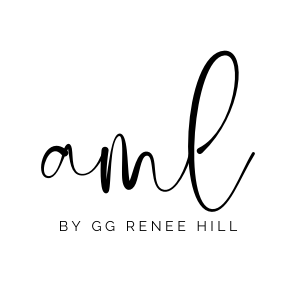7 tips for creative courage (other than ‘just do it’)
Sometimes 'just do it' (which I've been told many times) just doesn't cut through the emotional blocks that are blocking you from making progress on your creative goals.
Before I could just do it I had to find a deeper understanding of what I was doing it for. I had to define this meaning for myself. Now I show creatives a path to courage by aligning their truths, values, and passions with their efforts. I didn’t always think this way or draw from this place. At first, I put my creative energy into survival. I wrote to save myself from anxiety and depression.
To grow beyond that, I had to find another source, a healthier muse. I had to remember what it felt like to just draw a little house on a piece of paper with my favorite crayons and feel whole and worthy and take up space creatively. For me, I went back to what it felt like to dance on a stage for a recital or on a football field at half time. What it felt like to read a story that I wrote in front of my class. And then I had to find ways to experience that freedom again with this current version of myself.
If you have a creative calling, ‘just do it’ might be the exact motivational speech that you need. But if it is, you probably would have stopped reading by now and you’d be off just doing it. Some of us are responsive to a slower, more mindful approach that involves foundational work that builds courage, a personal development plan, an emotional support group and maybe even a coach to support us through the resistance and emotional blocks we face along the way. This is okay, too. Being aware of your needs will help you build courage and a lifestyle that more fully expresses who you are. Below I'm sharing seven ways to build courage through your personal creative habits:
Embrace your differences. Get curious about your unique qualities, especially the ones that may have been weaponized against you in the past. You may think of them as quirks, eccentricities, obsessions, interests, sensitivities, etc. With grateful eyes look at yourself and appreciate your specific way of being in the world. What if, instead of looking at your differences as sources of insecurity, you looked at them as sources of creativity?
GIve yourself a stretch project. Choose a small low-stakes project to create a rhythm and build resilience. So if you want to write a book, but you don’t currently have a writing practice, start with a journaling project. Make it simple and accessible for your current lifestyle and create a routine around it. Keeping this commitment will require you to practice the same emotional resistance and boundary setting that you will face when it comes to writing a book so you’re teaching yourself how to stretch into bigger projects.
Come out of the shadows. Talk about what you love when people ask you what you do. If your job is what you love, great. If not, then what lights you up and makes you feel alive? Talk about it more if you want to attract more people and opportunities that align with it. If you don’t have environments where you feel safe to talk about your passions, then that’s an action item. Which leads me to #4.
Find a creative community. You need people that you can nerd out with about your creative interests. Folks that speak your language. Who relate to the highs and lows and complexities and challenges. Your creative community helps you build courage in a safe space and feel seen and heard.
Bring more creativity into how you run your life. There are so many ways to do this. I normally resist and struggle through business planning but by purchasing a beautiful dedicated journal just for this activity and a set of pens that I love to write with and making it as much like an art project as I can, I’ve made this dreaded task into a ritual that I’ve come to enjoy, which builds courage in me to take on the next challenge.
Bring more creativity into your self-care habits. You have to take care of yourself, right? Think about your authentic needs when you decide how to care for yourself. If the doctor says you need cardio, what kind of cardio might inspire you creatively? If you need to improve your diet, how can you get creative in the kitchen? Connect your unique preferences and interests to your self-care and use this area of your life as another path to self-expression. As you see the impact of this, your self-trust and creative courage will grow.
Go back to the playground. Choose one creative outlet from your past that you used to enjoy and bring it back into your life in a way that makes sense for you now. Make room for it. Reconnect with the version of you inside who got joy from it. Your inner child is a pathway back to your natural creative expression. In The Artist’s Way, Julia Cameron says, “Your inner artist is a child and it needs to be fed.” If you don’t know what your inner artist needs, ask it. Take out a journal and write “What do I need to feel inspired and hopeful?” and then write what comes up.
You can sign up for my newsletter to receive these messages in your inbox.
If you’re seeking more creative support, The Inner Story Writing Circle is a membership for people interested in overcoming creative blocks and writing about their lives.
